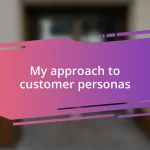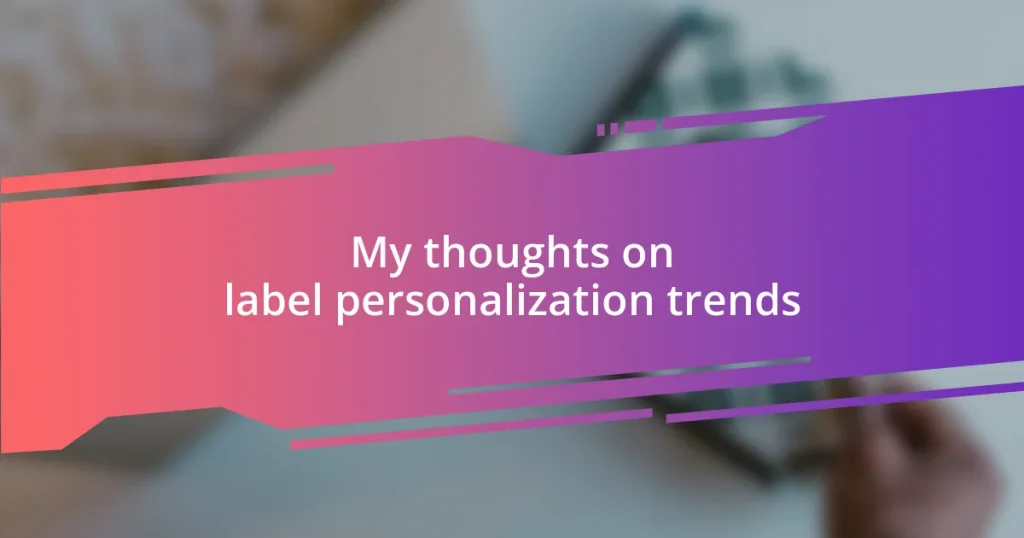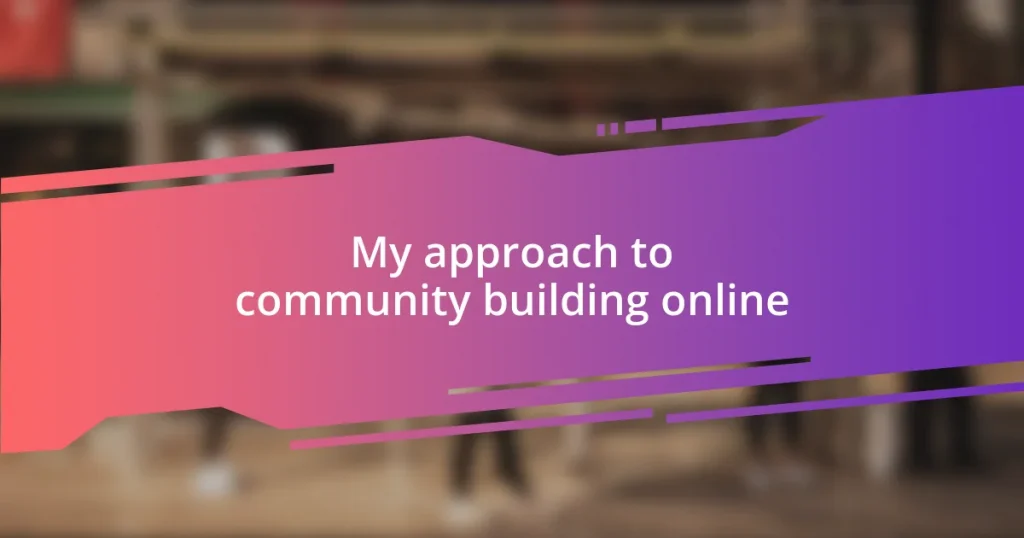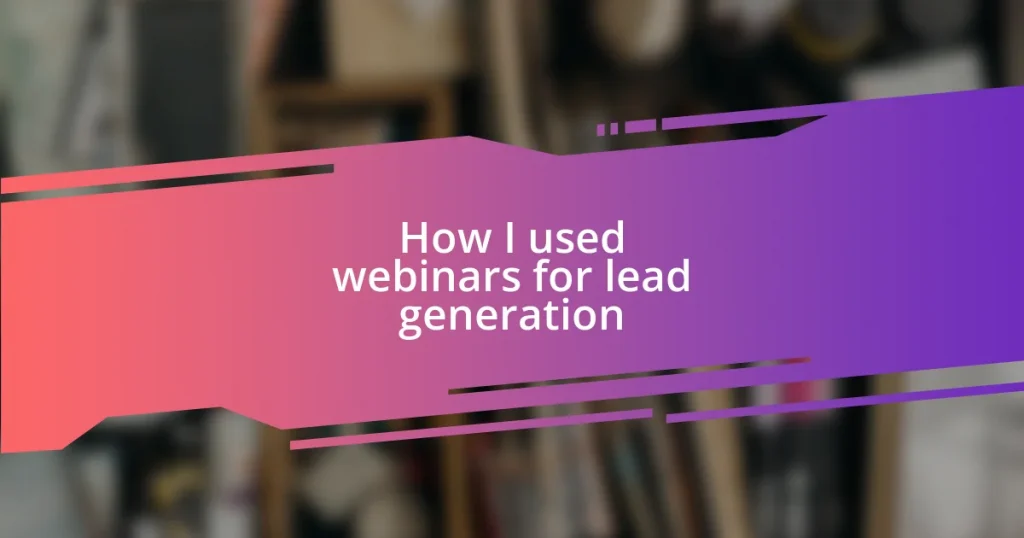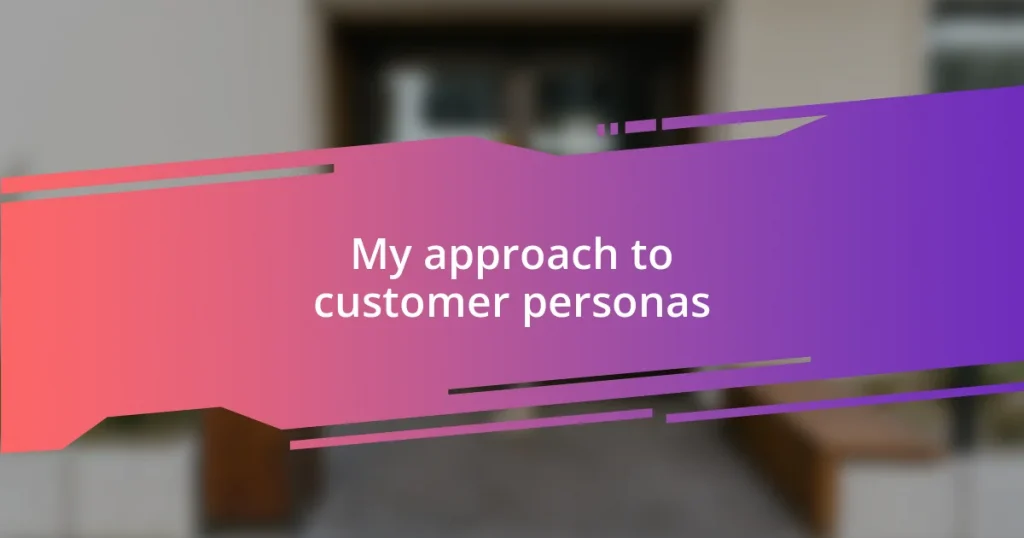Key takeaways:
- Label personalization enhances emotional connections between consumers and brands, making products feel special and memorable.
- Personalization in branding leads to increased customer loyalty and engagement by reflecting an understanding of individual preferences.
- The future of label personalization will likely involve augmented reality, artificial intelligence, and sustainable materials, creating more immersive and meaningful customer experiences.
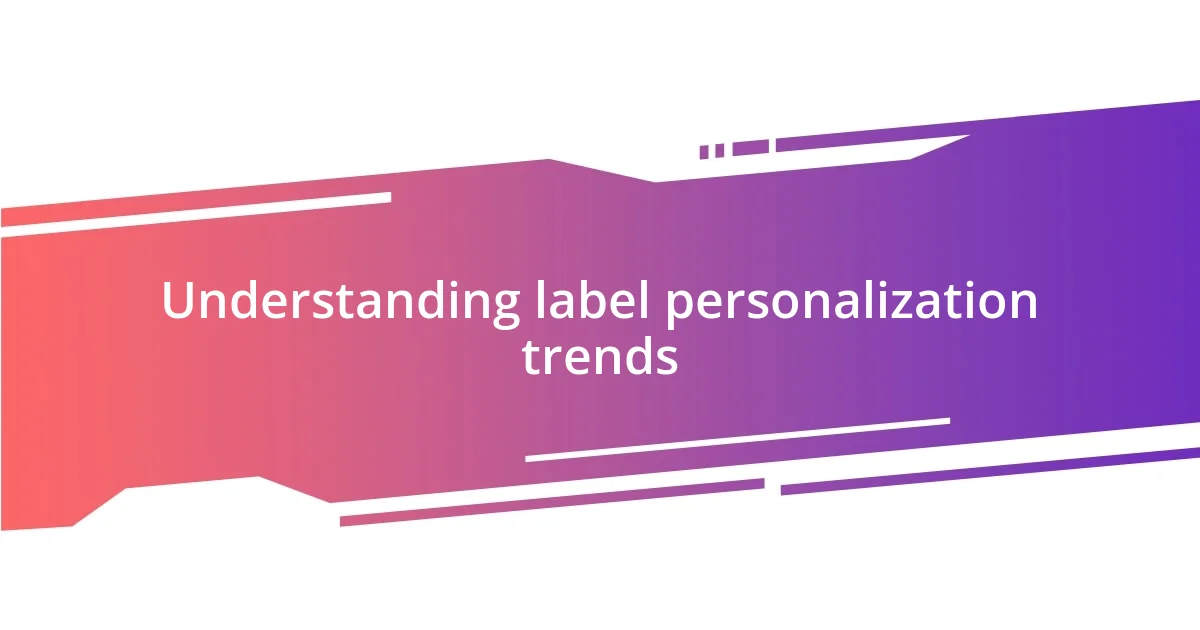
Understanding label personalization trends
Understanding label personalization trends means recognizing the shift towards customization that resonates with consumers on a personal level. I remember when I received a bottle of wine with my name beautifully etched on the label—it felt special, like I was part of an exclusive club. This kind of personal touch not only makes products memorable but also foster a sense of connection between the buyer and the brand.
As I dive deeper into label personalization trends, I can’t help but ask, how does a simple label transform the way we perceive a product? This intricate dance of design and identity not only caters to individual preferences but also reflects broader cultural movements. For instance, brands that embrace sustainability in their labels often see their sales soar. While I appreciate well-designed labels, it’s the stories behind them that truly tug at my heartstrings.
This trend isn’t just about aesthetics; it’s about creating experiences and evoking emotions. For example, when I purchase a skincare product that promises to address my specific skin type, the personalized label reaffirms that the brand understands me. Isn’t it fascinating how something as small as a label can influence purchasing decisions and brand loyalty? This growing demand for tailored experiences speaks volumes about what consumers truly desire: recognition and relevance.
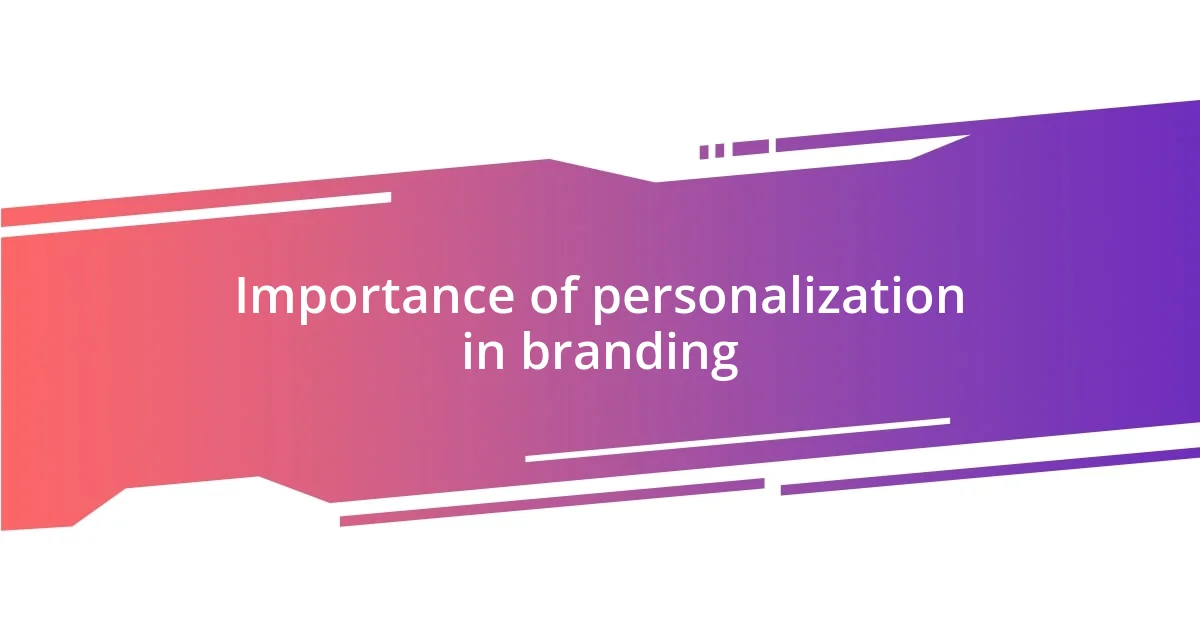
Importance of personalization in branding
Personalization in branding is essential because it transforms an ordinary experience into something special. I recall visiting a coffee shop that not only remembers my favorite order but also offers customized mugs with fun quotes. This small touch made me feel appreciated and valued, and it deepened my loyalty to that brand. The emotional connection I felt was immediate; I didn’t just enjoy the coffee, I cherished the entire experience.
When brands personalize their offerings, they demonstrate a genuine understanding of their customers’ needs. I once bought a bath product that catered to my stress relief preferences, complete with a personalized label featuring calming scents. That simple act of acknowledging my specific situation made me feel seen and heard, something I believe many consumers crave. It’s this kind of insight that stands out in a crowded marketplace, drawing customers back for more.
Personalized branding is not just a trend—it’s a powerful tool for building long-lasting relationships with consumers. I find it fascinating how many companies leverage data to understand customer behavior and tailor their messages. For instance, when I received a targeted advertisement for a fragrance perfectly aligned with my preferences, it felt less like marketing and more like a gift from a friend. This strategy helps brands not only stand out but also foster trust and loyalty.
| Benefits of Personalization | Examples |
|---|---|
| Increased Customer Loyalty | Customized products that resonate with individual identities |
| Enhanced Customer Experience | Brands remembering preferences, like favorite orders |
| Improved Engagement | Personalized marketing messages that feel relevant and timely |
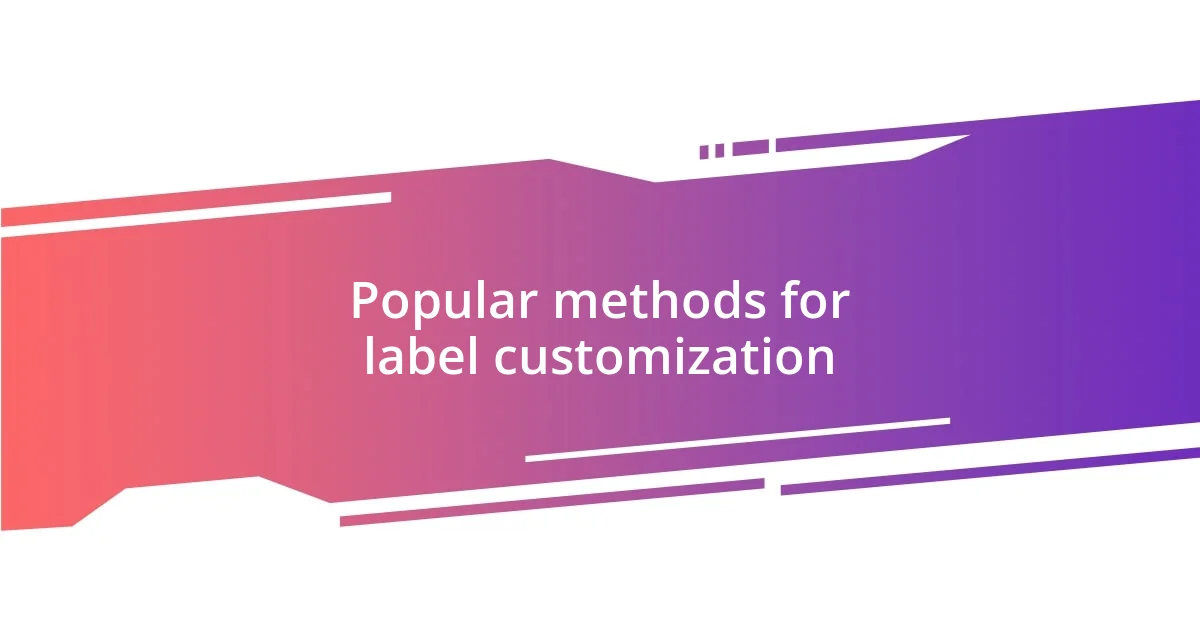
Popular methods for label customization
Label customization offers a variety of methods that can not only enhance a product’s appeal but also create a deeper bond with consumers. One of my favorites is digital printing, which allows brands to produce small runs of custom labels without sacrificing quality. I once experimented with homemade jam, and the colorful labels I printed at home made the jars feel like little artworks. That touch of personalization elevated the entire gifting experience; my friends appreciated the effort, making the jams even more memorable.
Here are some popular methods for label customization:
- Digital Printing: Perfect for short runs and intricate designs, delivering high-quality graphics.
- Foil Stamping: Adds a touch of elegance through metallic finishes, making products stand out.
- Embossing/Debossing: Creates a tactile experience that invites customers to touch and engage with the label.
- Handwritten Labels: Offers a uniquely personal touch, reminiscent of a warm, handwritten note.
- Variable Data Printing: Allows for unique labels with different names or messages, enhancing the personal connection.
On another note, I’ve come across brands that use sustainable materials for their labels, which resonates with my values. I was genuinely touched when I found a brand that incorporated seeds into their labels, allowing me to plant the packaging after use. It’s a beautiful way to leave a lasting impression. These methods not only attract attention but also evoke emotions that can transform a casual purchase into a cherished memory.
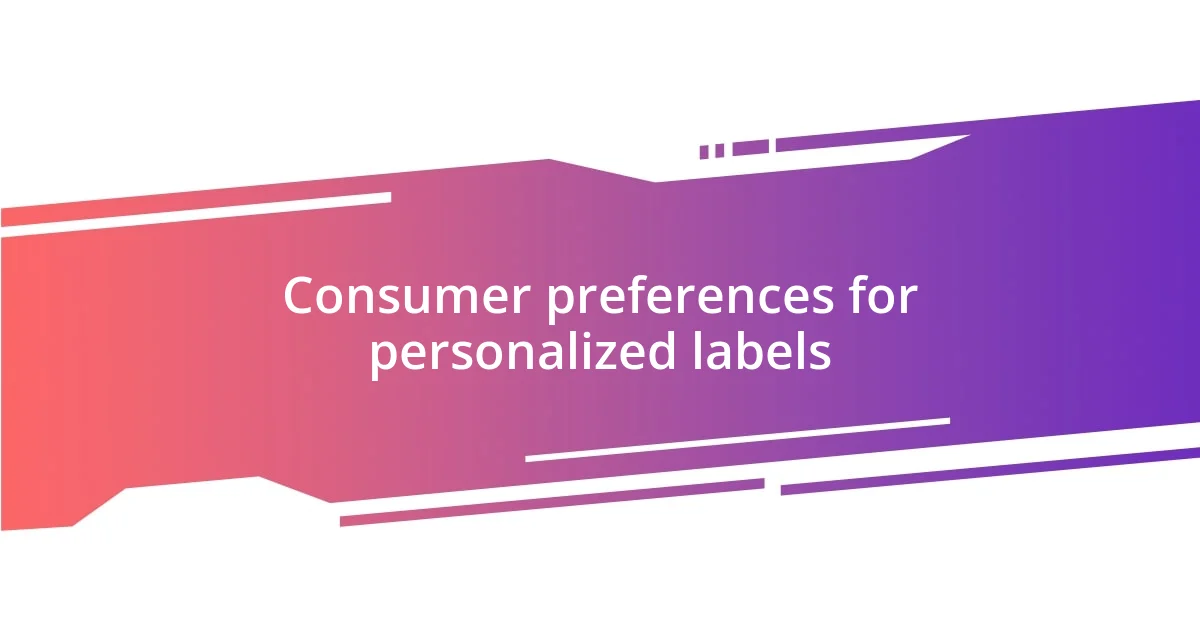
Consumer preferences for personalized labels
While shopping for gifts, I’ve noticed how a personalized label can turn an ordinary product into something truly special. I once gave a bottle of wine that had a custom label featuring not only the recipient’s name but also a personal message that reflected our friendship. Seeing their surprise and joy was unforgettable; it added a layer of thoughtfulness that a standard label simply couldn’t match. Isn’t it fascinating how a little personalization can evoke such strong emotions?
Many consumers, including myself, gravitate toward products that feel uniquely ours. I remember purchasing a skincare product which allowed me to choose my fragrance and even included my name on the label. The moment I saw it, I felt a connection; it was as if the brand was speaking directly to me. This kind of attention to detail makes a lasting impression and encourages repeat purchases, as I found myself looking for that same brand time and again.
There’s also a growing trend where consumers expect brands to understand their preferences without having to articulate them. When I received a customized snack box tailored to my dietary restrictions and taste preferences, it blew my mind. It felt like the brand had done the homework and curated something just for me. Wouldn’t it be great if more brands could adopt this level of insight? It’s a surefire way to create loyal customers out of curious shoppers, and that’s something every brand should strive for.
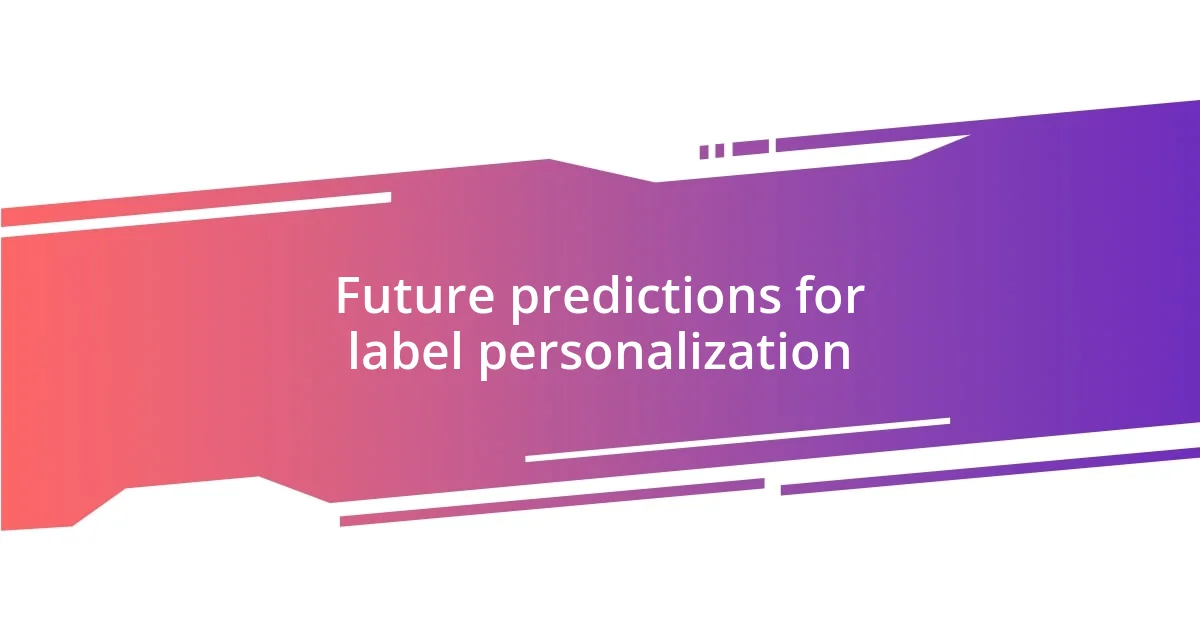
Future predictions for label personalization
The future of label personalization is undeniably exciting. I envision a world where augmented reality (AR) transforms how we interact with labels, turning them into dynamic experiences. Imagine pointing your phone at a wine bottle label and watching it come to life with the story of the vineyard or even tasting notes. It’s fascinating to think about how this technology could elevate our connection with products, making shopping not just a task but an immersive journey.
Another trend I anticipate is the integration of artificial intelligence (AI) into label personalization. Brands can analyze consumer data to create tailored recommendations that feel almost prescient. I once had a moment where an online store suggested a candle based on my previous purchases. When it arrived, I realized it was infused with scents I loved—how did they know? That touch of personalization not only surprised me but also made me feel valued as a customer. It makes you wonder, will AI soon understand our preferences so well that every product feels like it was made just for us?
Lastly, sustainability will play a pivotal role in future label personalization trends. As consumers become more eco-conscious, I believe we’ll see a rise in labels made from recycled materials that also incorporate unique elements like plantable seeds or biodegradable coatings. I once bought a soap bar with a label that was not only beautiful but also eco-friendly; I just had to plant it in my garden! That small act sparked a deep appreciation for the brand and fostered a sense of loyalty. Could this blend of personalization and sustainability redefine brand relationships in the coming years? It’s something I’m looking forward to witnessing.


